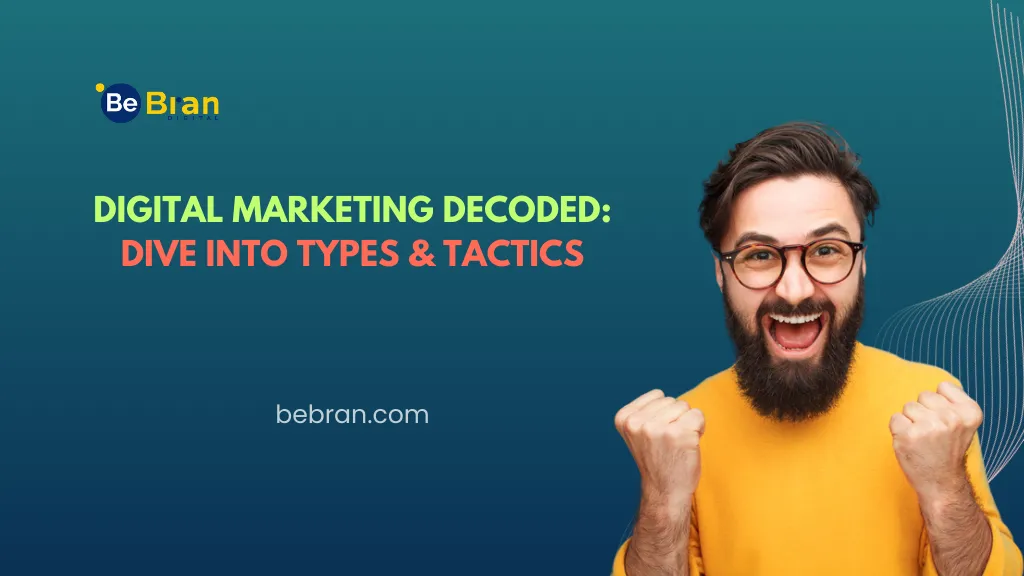
Ever scrolled through your phone and wondered why certain ads catch your eye, or how your favorite brands always seem to know just what you're thinking? That's digital marketing strategies at work! As we zip through the fast-paced online world, businesses use clever tactics to grab our attention. This isn't just wizardry or luck; it's a blend of strategies designed to connect with us.
In this guide, we're about to pull back the curtain and decode the magic of digital marketing strategies. We'll journey through its various types and dive deep into the tactics that make them tick. Ready to unravel the online mysteries and discover how brands speak our digital language? Let’s dive in!
Welcome to the Digital Age, a time where smartphones are almost an extension of ourselves, and the internet is our vast playground. Remember when we used to wait for letters in the mail? Now, a message travels across the globe in mere seconds, thanks to instant messaging and emails. The rapid evolution of technology in the last few decades has reshaped our lives, from how we work, play, and shop, to even how we communicate.
This isn't just about faster computers or nifty gadgets. It's about a profound shift in our culture. We're now in a world where digital platforms, like social media, shape our opinions and the news we consume. Even grandma is likely to be posting her latest cookie recipe on a blog or sharing holiday snaps on Facebook!
Businesses have had to adapt quickly. Traditional billboards and TV ads are now joined by targeted online advertisements and influencer partnerships. The essence of this age is connectivity. We're more connected than ever, not just to each other but to a world of information and entertainment. It's exciting, fast, and ever-evolving. So, as we zip through this digital era, let’s embrace its wonders and learn to navigate its vast oceans of opportunity.
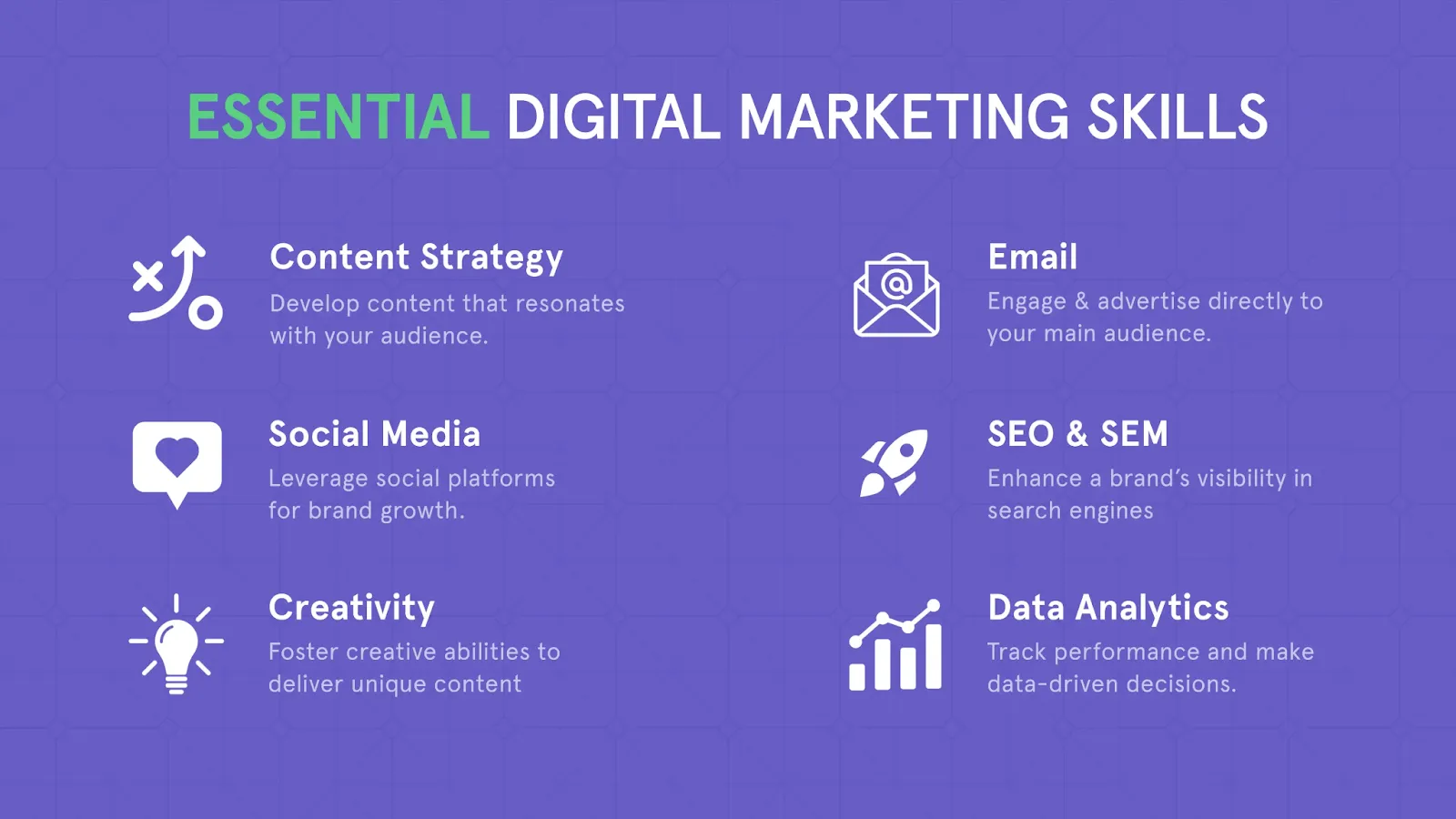
Ever wondered why, after you've browsed for a new phone online, ads for phone cases or screen protectors start popping up everywhere you click? Or how a brand seems to "follow" you on different websites? That's digital marketing strategies in action. With the world shifting online, the way we shop, communicate, and entertain ourselves has changed drastically. In tandem, the strategies businesses use to reach us have also evolved.
Think about it: When was the last time you bought something solely because of a TV commercial? Now, compare that to the number of times you've clicked on an ad online or checked out a product because an influencer you follow recommended it. Digital marketing, with its vast reach and precise targeting, offers businesses a more efficient way to connect with potential customers.
Understanding digital marketing strategies isn't just essential for marketers or business owners. As consumers, knowing how digital marketing strategies work can make us more informed and discerning. It helps us understand why we see certain ads, how our data is used, and even how to find better deals. In a nutshell, in this digital era, a grasp of digital marketing strategies is akin to having a superpower. Ready to harness it?
Ever typed a question into Google and found just the answer you needed at the very top? That's no accident; it's the magic of SEO! In simpler terms, SEO is like the GPS that directs online traffic. By optimizing website content with specific keywords, businesses can ensure they're the top destination for users' online queries. It's not just about getting more clicks but about reaching the right audience. In a vast digital highway with countless websites, SEO acts as the guiding star, ensuring you're easily found by those who seek what you offer. Want to be on the digital map? Dive into the world of SEO!
Imagine a vast digital library, teeming with countless books, and you're hunting for one specific title. Now, think of SEO as the librarian who instantly knows where that book is and hands it to you. SEO, or Search Engine Optimization, is the art and science of making web pages appealing to search engines. It's about understanding what people search for and ensuring your website gets a front-row seat in those search results.
In practice, it's a combination of technical tactics and content strategies. By optimizing elements like keywords, meta descriptions, and backlinks, your website becomes more attractive to search engines like Google, Bing, or Yahoo. When someone types in a query related to your business, a well-optimized site stands a better chance of appearing higher on the search result page.
But SEO isn't just about pleasing algorithms. At its core, it's about connecting with people. It's understanding their queries, answering their questions, and offering solutions. In a world where almost everything starts with an online search, mastering SEO ensures your digital voice isn't lost in the vast expanse of the internet. It's the bridge between your business and your audience in the digital realm.
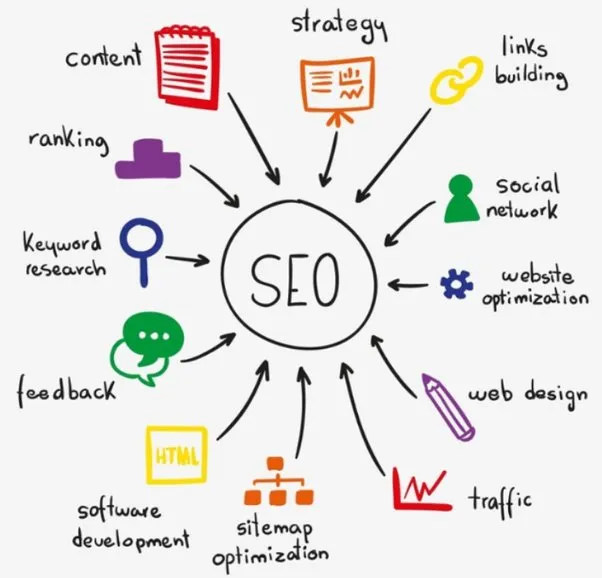
In the dynamic world of digital marketing strategies, staying ahead in the SEO game is crucial. Here's a handy guide to some tactics that can elevate your SEO strategy:
Remember, SEO isn't a one-time task but an ongoing strategy. Stay updated with the latest trends, be patient, and the results will follow.
Ever wondered how some ads just magically appear when you're searching online? That's PPC at work! Pay-per-click advertising is like a digital billboard on the internet highways. Advertisers pay a small fee only when their ad gets clicked, leading you straight to their website. Platforms like Google Ads make it easy to get started.
You select keywords related to your product or service, set a budget, and let the magic happen. The result? Instant visibility and potential customers directly on your site. It's a nimble, flexible tool in the marketer's toolkit, perfect for businesses aiming for immediate online traction.
Pay-per-click (PPC) is a type of online advertising where advertisers pay a fee each time their ad is clicked, rather than earning those visits organically. Think of it as buying visits to your site! The key benefits of using PPC are as follows:
In the vast ocean of digital marketing strategies, PPC stands out as a beacon for businesses wanting fast, controlled, and effective advertising. When done right, it offers a fantastic return on investment and can drive significant traffic and sales.
Pay-per-click (PPC) advertising sounds simple enough: you pay a fee each time someone clicks your ad. But, to ensure you're not just throwing money into the digital void, optimization is key. Let's dive into some straightforward tactics to make your PPC game strong!
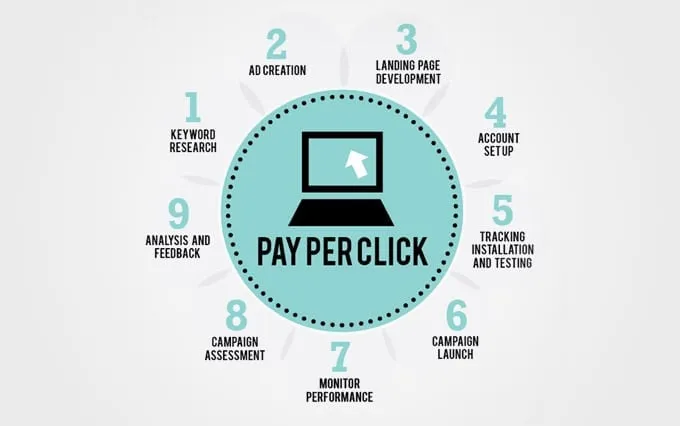
Remember, while PPC can offer immediate results, it's not a set-it-and-forget-it tool. Regularly refining and optimizing your campaigns ensures you get the most out of every penny spent.
At its core, content marketing isn't just about producing articles, blogs, or social media posts. It's about crafting meaningful stories that resonate with your target audience and establishing your brand as a trusted resource. In the digital landscape, where consumers are bombarded with ads and promotions, content marketing emerges as a subtler, yet powerful tool.
By offering valuable, relevant information to users, you not only foster trust but also build lasting relationships. Think of it as a two-way conversation with your audience, where you listen, engage, and then deliver what they're seeking. Dive in, and discover the art of connecting through content!

Once upon a digital time, businesses believed that mere product descriptions and generic content sufficed. But soon, they realized the magic of storytelling and its profound impact on content marketing.
Storytelling is as ancient as human civilization itself. From cave paintings to folklore, stories have been our primary tool to convey emotions, experiences, and values. Fast-forward to today's digital era and storytelling remains pivotal but in a modern context - selling products and brands.
Through compelling narratives, brands can form genuine emotional connections with their audiences. Stories humanize businesses, making them more relatable. They allow companies to position themselves not just as sellers, but as entities with values, aspirations, and visions.
For instance, instead of merely advertising a shoe's features, narrate the tale of a person who ran their first marathon wearing those shoes. Such content transforms products from mere objects into symbols of aspirations and dreams.
Moreover, stories are memorable. A well-narrated brand tale can linger in the audience's mind far longer than any promotional content. In essence, storytelling in content marketing isn't just about selling; it's about engaging, inspiring, and building trust. In a world brimming with content, authentic stories make brands unforgettable.
Drowning in the digital deluge? You're not alone. Every day, countless pieces of content are uploaded online, vying for the same audience's attention. So, how do you ensure that your content stands out? The answer lies in crafting compelling content that resonates.
Remember, compelling content isn't about big words or jargon. It's about connecting, understanding, and offering value. Aim to touch the heart, and you'll invariably capture the mind.
Ever heard the buzz around affiliate marketing and wondered what the fuss was about? Well, it's quite simple! Affiliate marketing is a modern, online spin on the age-old concept of earning a commission by selling someone else's product. Think of it as being a digital ambassador for a product or service.
You recommend it, someone buys through your unique link, and you get a piece of the pie. It's the digital realm's answer to passive income. With no need to develop products or manage inventory, affiliate marketing offers an attractive avenue for many to monetize their online presence or content. Ready to explore? Dive in!
Affiliates, in the digital marketing realm, are like the bridge between a potential customer and a product or service. They're not the creators or direct sellers but the recommenders. Using unique links, they direct you to a product, and if you buy it, they earn a commission. Think of them as trusted friends suggesting a new restaurant. Only, in the digital space, if you dine based on their recommendation, they get a thank-you tip. They play a pivotal role in e-commerce, helping brands reach audiences they might not have accessed otherwise. So, next time you click on a recommended link, know there's an affiliate working hard behind the scenes!

Affiliate marketing might sound straightforward: recommend, redirect, and rake in the commission. However, achieving consistent success requires a deeper dive into potent strategies.
In essence, successful affiliate marketing is a blend of genuine engagement, continuous learning, and staying updated with market trends. When done right, it's a win-win for both the promoter and the audience.
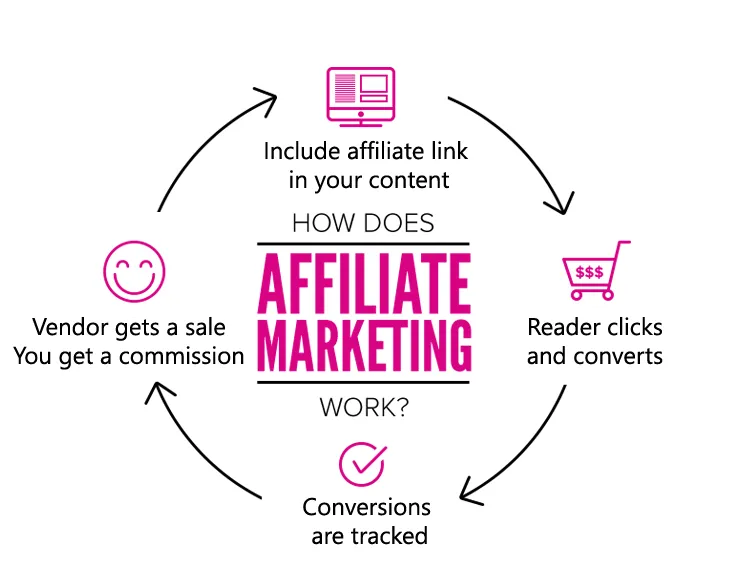
Digital marketing strategies are no longer optional; it's essential. By understanding its types and tactics, brands can harness its power, engage with their audience, and drive sales. Ready to dive in?
1. Are digital marketing strategies costly?
Not necessarily. With strategies like SEO, brands can even market for free!
2. Which platform is best for my brand?
It depends on your audience. Research where they spend their time.
3. How often should I post on social media?
Consistency is key. Regular posts keep your audience engaged.
4.Can I handle digital marketing strategies on my own?
While possible, agencies or specialists can offer expertise and save time.
5. How do I measure success?
Metrics! From website visits to conversion rates, track everything.